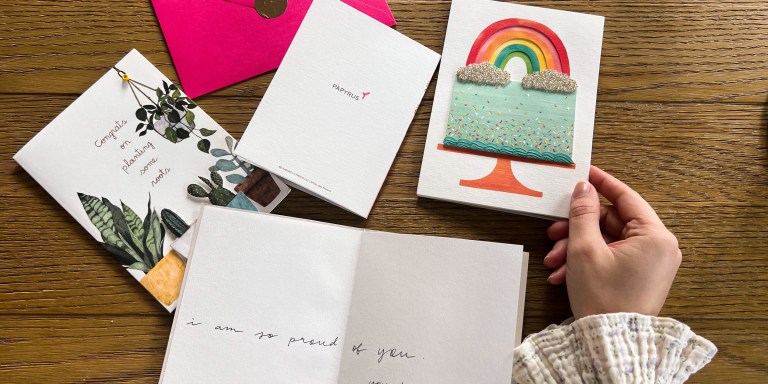
New year resolutions is something that I don’t share publicly.
The goals I write down are personal and most of them won’t be applicable to others. However, I did identify one resolution that I think can be helpful. For the past few years, I’ve stacked books on top of books (virtually) based on recommendations I’ve received from friends, podcast guests, and my personal discoveries.
The problem was: I’ve never made the time (and priority) to set up the right systems to read more books.
Now, I’m laying out a public challenge to you and myself called ‘The BAW (Book A Week) Challenge’. The goal is simple: read 52 books in one year (one a week; four a month).
*Note: Yes, this is published in February so if you want to participate it can be 48 books.
If you just want the list of books that I’ll be reading, you can scroll down. If you’re interested in participating, listen to the podcast episode.
How I’m approaching the reading process.
1. Picking 1-3 areas of my life that I want to most improve or optimize.
This year, with the goal to find more balance, I’ve decided to pick diversified topics most important in my life: Health & Wellness, Wealth & Business, Biographies. You can decide to go deep in one topic, and just read books on business, or just on health. Personally my ADHD will drive me nuts, but whatever floats your boat!
2. Create a list of books you want to read.
Scour the web, browse through Amazon, take some of my suggestions — do whatever you need to get as many recommendations as possible. Make sure it’s from a diversified circle of people or source, so you can get a diversified group of books. Try to go beyond 52 books if you can.
3. Categorize them into the 1-3 areas.
- If you have more than 2+ topics, you can either: Read 4 books a month on one topic, then 4 books on the next.
- Or…Diversify by reading books on each topic every month (this is my approach)
- Have a free for all section
- This gives you the freedom to either choose a book that is not related to the topics you chose, or read another book around your chosen topic. For me, these are topics around psychology, philosophy, relationships, history, fiction books, and more.
4. Go through your book list and start adding books in the order that you’re interested in.
What usually works for me is to select topics that I can immediately apply in my life. Otherwise, you feel forced to read something that’s not directly applicable.
Another tip to keep in mind is to do some back research on the length of each book. For example, you wouldn’t want to cram in multiple 400-page books in the span of a month. Unless you’re a reading machine, then all the power to you! And last but not least…
5. Put the rest on your backlog.
The backlog is there in case you run into a book that you lose interest in (which happens more often than you think). I’ve found that it’s rarely a good idea to finish a book for the sake of finishing a book. If you’re not vibing with the author, drop it and move on.
My last $0.02
- Take the time to study the process of reading faster. If you’re going to be reading 100,000’s of words, taking a few minutes to increase your reading speed can save you a massive amount of time.
- Measure how fast you currently read using this free test.
- Check out these free resources (or research on your own) on how to read faster:
- Blog post on Tim Ferriss, Blog post on Rype, Blog post on Mark Manson
- Try repeating the test again, and practice until you see some improvements
- Audiobooks can speed up your ‘reading’ MUCH faster. If you can retain non-fiction books in audio format, then this option is highly recommended. Although for certain books that involve more visual representation (such as bodybuilding or nutrition books), I prefer reading them.
- Check out Audible or Audiobooks.com
- Even though I’ve resisted Kindle for awhile (I’ve always liked the tangible feeling of books), adopting it into my life has been huge. I no longer have to carry around books when I travel, and I can bring one tablet that contains all of my books.
- If you slip up and forget to read a book (which will happen), keep going. The real purpose of the challenge is not to read 52 books in 52 weeks, it’s to develop the habits, time management, and reading skills to read more books. As long as you end up reading more books than you normally would, you’ve already won.
Without further ado, here’s my book-a-week reading list. Use and share it as freely as you please.
January
- Health: Becoming the Iceman by Wim Hof
- Wealth: The Ultimate Sales Machine: Turbocharge Your Business with Relentless Focus on 12 Key Strategies by Chet Holmes
- Biography: The Everything Store: Jeff Bezos and the Age of Amazon by Brad Stone
- Free for all: The Art of Thinking Clearly by Rolf Dobelli
February
- Health: The New Encyclopedia of Modern Bodybuilding : The Bible of Bodybuilding by Arnold Schwarzenegger
- Wealth: The Sales Acceleration Formula: Using Data, Technology, and Inbound Selling to go from $0 to $100 Million Hardcover by
- Biography: Benjamin Franklin: An American Life Paperback by
- Free for all: Getting Everything You Can Out of Everything You’ve Got by Jay Abraham
March
- Health: The 4 Hour Body: An Uncommon Guide to Rapid Fat Loss, Incredible Sex and Becoming Superhuman by Tim Ferriss
- Wealth: Breakthrough Advertising by
- Biography: Titan: The Life of John D. Rockefeller, Sr. Paperback by
- Free for all: Thinking, Fast and Slow by
April
- Health: The Bulletproof Diet: Lose up to a Pound a Day, Reclaim Energy and Focus, Upgrade Your Life Hardcover by
- Wealth: Influence: The Psychology of Persuasion by
- Biography: Creativity, Inc.: Overcoming the Unseen Forces That Stand in the Way of True Inspiration by
- Free for all: Killing the Rising Sun: How America Vanquished World War II Japan by
May
- Health: The FastDiet: Lose Weight, Stay Healthy, and Live Longer with the Simple Secret of Intermittent Fasting by
- Wealth: Smart Pricing: How Google, Priceline, and Leading Businesses Use Pricing Innovation for Profitability by
- Biography: Grinding It Out: The Making of McDonald’s Mass Market Paperback – August 2, 2016
- Free for all: Poor Charlie’s Almanack: The Wit and Wisdom of Charles T. Munger, Expanded Third Edition Hardcover – 2005 by
June
- Health: Ending Aging: The Rejuvenation Breakthroughs That Could Reverse Human Aging in Our Lifetime by
- Wealth:The Checklist Manifesto: How to Get Things Right by
- Biography: Sam Walton: Made in America by Sam Walton
- Free for all: Thank You for Being Late: An Optimist’s Guide to Thriving in the Age of Accelerations by
July
- Health: The Book of Joy: Lasting Happiness in a Changing World by
- Wealth: Who by Geoff Smart
- Biography: The Hiltons: The True Story of an American Dynasty by
- Free for all: Lying by Sam Harris
August
- Health: The Story of the Human Body: Evolution, Health, and Disease Reprint Edition by
Wealth: When I Stop Talking, You’ll Know I’m Dead: Useful Stories from a Persuasive Man by - Biography: All Quiet on the Western Front by
- Free for all: The Effective Executive: The Definitive Guide to Getting the Right Things Done by
September
- Health: The Happiness Hypothesis: Finding Modern Truth in Ancient Wisdom by
- Wealth: How to Build a Real Estate Empire
- Biography: Victoria: The Queen: An Intimate Biography of the Woman Who Ruled an Empire by
Free for all: Our Country’s Presidents: All You Need to Know About the Presidents, From George Washington to Barack Obama by
October
- Health: Flow: The Psychology of Optimal Experience by
- Wealth: Compelling People: The Hidden Qualities That Make Us Influential by
- Biography: Genghis Khan and the Making of the Modern World by
- Free for all: Tao Te Ching by Lao Tzu
November
- Health: The Men’s Health Big Book of Food & Nutrition by Joel Weber
- Wealth: The Advantage: Why Organizational Health Trumps Everything Else In Business by
- Biography: The Autobiography of Malcolm X by Malcolm X
- Free for all: The Gift of Fear and Other Survival Signals that Protect Us From Violence by
December
- Health: Meditations by Marcus Aurelius
- Wealth: Pitch Anything: An Innovative Method for Presenting, Persuading, and Winning the Deal by
- Biography: Kon-Tiki: Across the Pacific in a Raft by
Free for all: The Complete Story of Civilization: Our Oriental Heritage, Life of Greece, Caesar and Christ, Age of Faith, Renaissance, Age of Reason Begins, Age of Louis … Revolution, Age of Napoleon, Reformation by
The Backlog
Health & Wellness
Mindset by Carol Dweck
Siddhartha by Hermann Herse
Paradox of Choice by Barry Schwartz
Business & Money
The Fountain Head by Ayn Rand
Atlas Shrugged by Ayn Rand
What They Don’t Teach You At Harvard Business School by Mark McCormack
As a Man Thinketh by James Allen
Small Giants by Bo Burlingham
Disrupt You by Jay Samit
Becoming a Category of One by Joe Calloway
Biographies
The Churchill Factor by Boris Johnson
Muhammad Ali: His Life And Times by Thomas Hauser
Empire State Of Mind: How Jay-Z Went From Street Corner To Corner Office by Zack O’Malley Greenburg
Churchill: A Life by Martin Gilbert
Other
Tao Te Ching by Lao Tzu
A Short History of Nearly Everything by Bill Bryson
On The Shortness of Life by Seneca
Sapiens by Yuval Noah Harari
What If? by Randall Monroe
This episode is brought to you by Rype. ![]()





